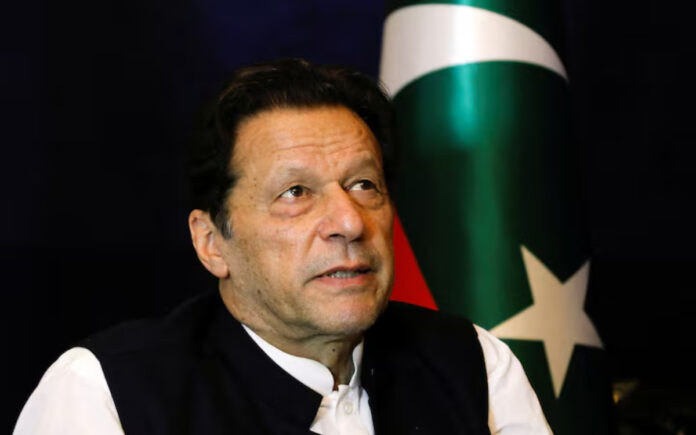Islamabad: Pakistan’s jailed former prime minister, Imran Khan, asserted on Thursday that February’s national election was stolen from his party, describing it as the “biggest robbery of a public mandate”. Speaking via video link from Adyala jail in Rawalpindi to the Supreme Court, Khan claimed he was being held in solitary confinement. These remarks were his first in open court since his imprisonment in August.
“My party is being victimized. There have been gross human rights violations,” Khan stated. “The February 8 election was the biggest robbery of a public mandate.” The Election Commission has denied any rigging in the election.
Khan, a 71-year-old cricketer-turned-politician, was jailed on corruption charges and is also contending with numerous other cases. He and his Pakistan Tehreek-e-Insaf Party (PTI) argue that the charges are politically motivated to prevent his return to power.
Candidates backed by Khan secured the most seats in February’s election but did not achieve a majority needed to form a government. His opponent, Shehbaz Sharif, became prime minister in a coalition government with several other parties.
Also Read | Iran Begins Candidate Registration for Early Presidential Election After Raisi’s Death
The Supreme Court permitted Khan to appear and present petitions against amendments to the country’s anti-graft laws, which he claims were made to benefit corrupt politicians. However, the court rejected his request to live-stream the proceedings, stating it was not a matter of public interest, according to a Reuters reporter inside the courtroom.
Khan has previously communicated through a select group of reporters allowed to cover his closed-door trials conducted within the jail. His aides have been relaying his messages after visiting him, and his social media accounts remain active, although it is unclear who manages them.
Also Read | France and Germany Support Ukraine’s Right to Use Western Weapons on Russian Soil
Khan has faced numerous legal challenges since his ouster in 2022 through a parliamentary vote of confidence, which he alleges was backed by the powerful military following a fallout with army generals. The military denies these accusations.



